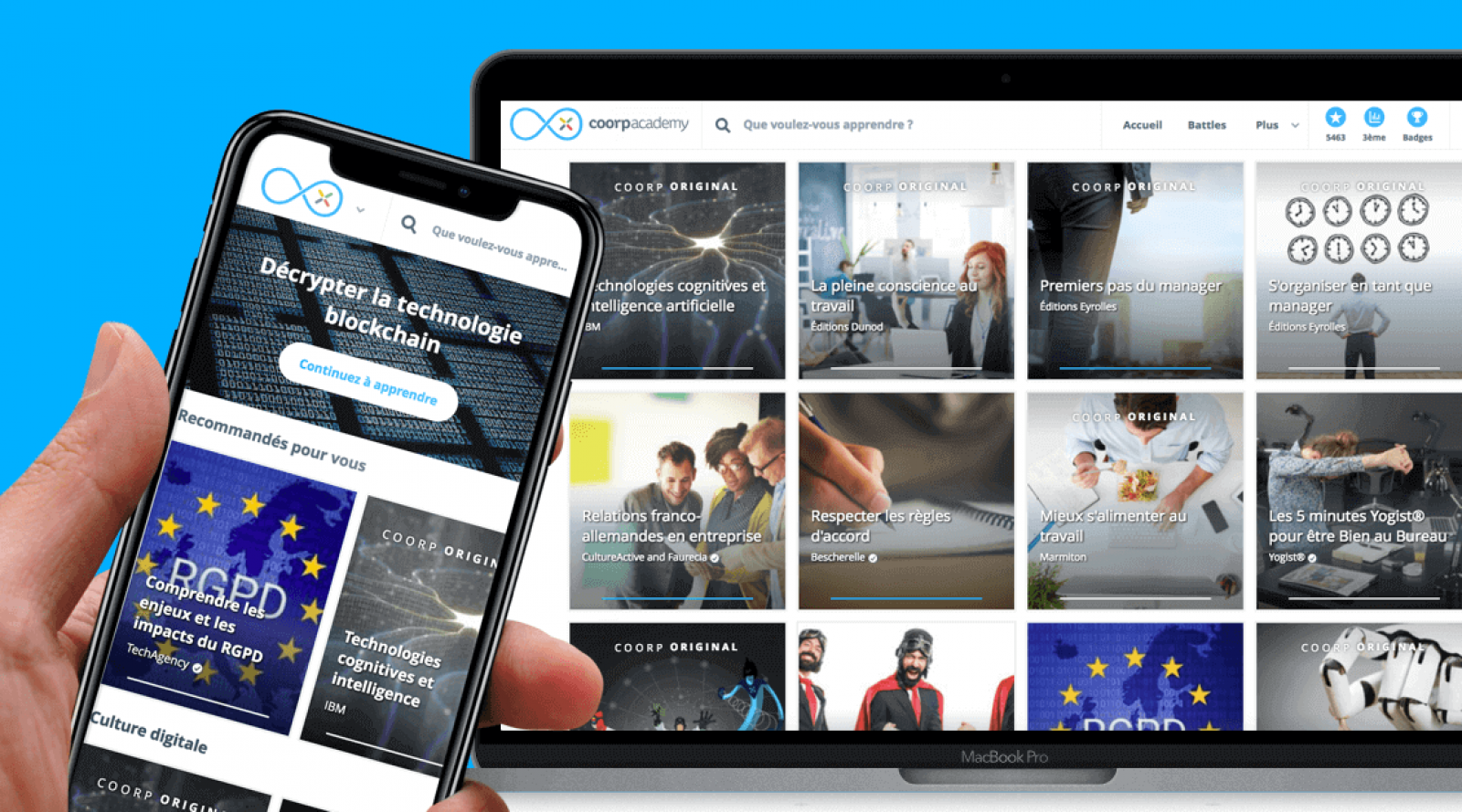Corporate training is dead, long live corporate training!
Press
An article by Arnauld Mitre, co-founder of Coorpacademy.
Like all content industries since the advent of the web, the continuous training sector is mutating.

Let’s go back in time and recall what happened for movies and TV shows. Back in the day, it was possible to buy or rent a DVD shortly after a movie theater screening, or to patiently wait for it to be aired on television: that rhythm was imposed on viewers.
Illegal piracy websites caused the first shake-up in this industry: apart from giving access to content for free, they highlighted the customer’s desire to have instantaneous access to an infinite catalogue of content. That’s why companies like Apple (with iTunes) reinvented their business model to include payment for each acquisition, helped by a qualitative user experience. Then Netflix changed the game by offering a non-binding monthly subscription to a huge amount of content, much of which is exclusive.
This power shift to the user (who now decides the “what”, “when” and “how” of viewing) is also happening in the world of vocational training. MOOCs (Massive Online Open Courses) and their models of free access to a global knowledge database represent the first step of this ongoing revolution. They have shown companies’ heads of training that it is unrealistic to try to control topics employees want or need to be trained in – and the employees have in their hands a magic wand (a smartphone!) allowing them to access anything, wherever and whenever they want.
And we’re already in the next step of this revolution: the centralization of infinite learning content in one platform, like the kind Netflix offers. Why? Because infinity has a major flaw: you can get lost pretty easily. A friend told me a few years ago that as he had 2 million songs on his iPod, he didn’t know what to listen to anymore! From this “flaw” arises the necessity for the platform: one where you can find recommendations and editorial treatment of content to allow the learner to take the most benefits from the vastness of a course catalogue.
Opponents of these wide-open catalogues and marketplaces, will tell you that this system brings a loss of control, with the risk of lower quality content. But that complaint forgets that these platforms have allowed the rise of talented people that couldn’t have broken through if they had to wait to be selected by omnipotent broadcasters.
The good news is: companies are starting to change things by opening up to innovative solutions – frequently from start-ups in EdTech (Education Technology). Corporate training is dead, long live corporate training!
NB: This article has been initially published in French by Les Echos. If you want to read it in its original form, please click here.


